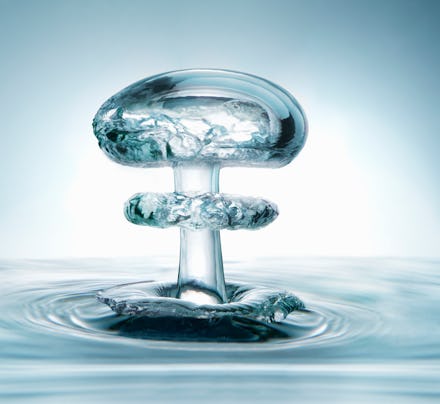Your Next iPhone's Battery Life Could Last a Week Thanks to This Hydrogen Fuel Cell

Hydrogen: Good enough to blow up an island, good enough to power your phone.
British fuel-cell company Intelligent Energy claims it may have an iPhone battery that can stay charged for a week, using hydrogen as its fuel source. Apple may or may not be actively working with Intelligent Energy on the project.
According to the Telegraph, the company has a working iPhone 6 prototype containing a rechargeable battery, a fuel cell that combines hydrogen and oxygen to create electricity and an adapted headphone jack to refill the cell with hydrogen gas.
Intelligent Energy might be best-known for Upp, a $200 hydrogen fuel cell that can act as an external charger for dying smartphones. Upp has 25 amp-hours of charge, or over 10 times the charge of most smartphones on the market.
How a hydrogen fuel cell works: A fuel cell converts chemical energy, or the reaction between two elements, into electricity. In this case, when hydrogen and oxygen atoms interact, they create water and release energy, which is then caught and harnessed by the cell.
Unlike a battery that holds a charge, a fuel cell is only good as long as it's being inundated with oxygen to combine with hydrogen and create energy. That's why fuel cells work so well in cars: As long as the vehicle is moving, the cell has oxygen to consume.
But that might not be too effective for mobile tech. More often than not, your iPhone lives with the lint in your pocket.
To create electricity, the hydrogen cell has to give off water vapor and be constantly hit with air. Upp, the external fuel cell, has tiny fans to make this happen. But if you aren't leaving your phone out on your desk, holding it as you walk or wearing it on a belt clip like a dad on vacation, the fuel cell may not work as efficiently.
Still, the technology is promising, and if finding a steady flow of oxygen is one of the few hangups, that's a good sign. After all, NASA has been using hydrogen gas for years. If the company is able to simplify its technology, hydrogen, best known for its massive, planet-exploring and bomb-fueling power, could be the next step in harnessing energy for everyday products.
h/t The Telegraph